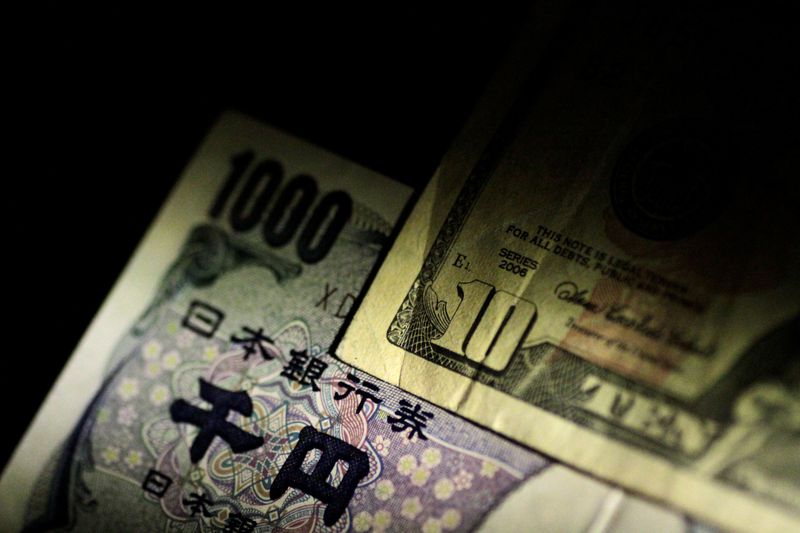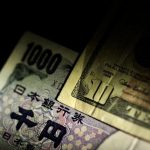LONDON (Reuters) – The dollar was slightly weaker on Monday but remained close to an almost eight-week high, while the yen languished near the 160 level, drawing verbal warnings from Japanese authorities as intervention fears grip markets.
The yen weakened to 159.94 per dollar in early trade, its lowest since April 29, when the yen touched a 34-year low of 160.245, leading to Japanese authorities spending roughly 9.8 trillion yen to support the currency.
The yen was last slightly firmer at 159.75 per dollar after Japan’s top currency diplomat Masato Kanda said on Monday authorities will take appropriate steps if there is excessive foreign exchange movement, and that the addition of Japan to the U.S. Treasury’s monitoring list would not restrict their actions.
“We will firmly respond to moves that are too rapid or driven by speculators,” Kanda said, but noted authorities had no specific levels in mind on when to intervene.
The yen has come under renewed pressure after the Bank of Japan’s (BOJ) decision this month to hold off on reducing bond-buying stimulus until its July meeting. It is down 1.5% in June.
“I don’t necessarily think that the act of breaking the psychological level is enough (for intervention) any more,” said Simon Harvey, head of FX analysis at Monex.
“Authorities have told us that they care more about the pace and disorderly moves as opposed to individual levels.”
A summary of opinions at the BOJ’s June policy meeting on Monday showed some policymakers called for raising interest rates in a timely fashion as they saw a risk of inflation overshooting expectations.
The yen, which is highly sensitive to U.S. Treasury yields, is down over 10% against the dollar so far this year, weighed down by the wide difference between interest rates in Japan and the United States.
Demand for carry trades, borrowing yen at low rates to buy higher yielding currencies, has also taken both the Australian and New Zealand dollars to 17-year peaks on the yen. [AUD/]
INFLATION TEST AHEAD
The spotlight this week will be on the U.S. personal consumption expenditures (PCE) price index – the Federal Reserve’s favoured gauge of inflation – due on Friday.
Economists polled by Reuters expect annual growth in the index to slow to 2.6% in May. A soft reading is likely to bolster bets on a rate cut as early as September, which futures currently price as a 70% prospect, CME FedWatch tool showed.
The dollar index, which measures the U.S. unit against six peers, was last at 105.66, edging back from a nearly eight-week high of 105.91 it touched last week.
The focus through the week will also be on geopolitics, with the first U.S. presidential debate on Thursday and the first round of voting in the French election at the weekend.
“You’re going to see a lot of defensive positioning going into the first round of the French election and U.S. presidential debate,” said Monex’s Harvey.
“While there is a sense of calm which is weighing on the dollar this morning, political risk is still a decent source of strength for the dollar and we expect the dollar index to finish the week higher.”
The euro, which has been under pressure since French President Emmanuel Macron called a snap election earlier this month, was up 0.2% at $1.07125 but was still down 1.2% in June.
France’s far right National Rally (RN) party and its allies were leading the first round of the country’s elections with 35.5% of the expected vote, an opinion poll published on Sunday showed.

RN lawmaker Jean-Philippe Tanguy, who is widely seen as the most likely candidate to head the finance ministry if the party wins and forms a government, told Reuters an RN government would stick to the European Union’s fiscal rules.
Meanwhile, spot yuan was trading at 7.2609 per dollar, within a very narrow range and close to its lowest in seven months, weighed by broad strength in the dollar and worries about weakness in the world’s second-largest economy. [CNY/]
To read the full article, Click Here

